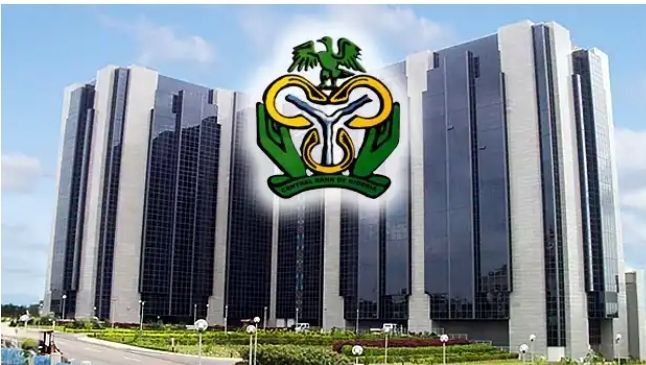The Central Bank of Nigeria (CBN) has directed all banks to submit a thorough Capital Restoration Plan within 10 working days after the end of each quarter beginning June 30, 2025, as part of a bigger plan to stabilize the financial sector and phase out pandemic-era emergency funds.
The CBN has stated that it wants to see cost-cutting measures, asset quality improvements, potential risk transfers, and longer-term business strategy revisions. Each bank’s capital restoration plan must detail how it intends to return to full regulatory compliance.
A circular signed by Dr. Olubukola Akinwunmi, Director of Banking Supervision, and posted on the CBN’s website yesterday describing the new restrictions is part of the central bank’s ongoing attempts to phase away the regulatory forbearance framework established during the COVID-19 crisis.
The CBN states that the transitional framework is meant to assist impacted banks in returning to full prudential compliance while promoting macro-financial stability.
The circular said that all regulatory forbearance and waivers pertaining to Single Obligor Limits (SOL) from the COVID-19 era will be terminated beginning June 30, 2025. It stated that the goal is to reestablish risk sensitivity in credit provisioning and classification.
To aid asset quality cleanup, the central bank temporarily lifted the requirement that banks retain fully provisioned loans for a year before writing them off, allowing affected banks to lower non-performing loans (NPLs) more swiftly.
Furthermore, from June 30, 2025 to March 31, 2026, the regulatory constraints on Additional Tier 1 (AT1) capital recognition in the CAR calculation were temporarily lifted. However, the CBN clarified that this step is “not a substitute” for the ongoing recapitalization exercise, which was announced in March.
According to the statement, “The Central Bank of Nigeria (CBN) hereby communicates a coordinated set of transitional measures aimed at maintaining financial system stability and ensuring a credible and orderly exit from the regulatory forbearance regime implemented during the COVID-19 crisis.” These initiatives are intended to help harmed banks satisfy prudential criteria and make a smooth transition away from short-term regulatory breaks.
All impacted banks must develop and submit a comprehensive Capital Restoration Plan to the CBN by the tenth working day after the end of the quarter, beginning June 30, 2025, to augment the aforementioned measures and ensure forward-looking capital planning.
Read Also: Tinubu: Fuel Subsidy Cut Savings Are Being Reinvested
The strategy should incorporate management’s suggested measures for recovering total regulatory compliance, such as cost optimization, risk asset reduction, risk transfer, and business model improvements.
“Until capital and asset quality indicators are fully normalized, the plan must span the whole time frame.” In addition to serving as the foundation for continued supervisory monitoring and involvement during the transition, submitted plans will be subject to regulatory examination and approval.
Furthermore, it said in instructions released for prompt adoption and total compliance that “all regulatory forbearance and waivers on Single Obligor Limits (SOL) relating to COVID-19 shall end as of June 30, 2025.” This stage aims to reestablish risk sensitivity in asset quality evaluations, provisioning, and credit classification.
All concerned banks’ credit exposures must comply with the most recent CBN Prudential Guidelines and any applicable regulations.
“The requirement that fully provisioned loans be held for a year before being written off is temporarily waived for facilities related to forbearance in order to support asset quality cleanup.” Banks may proceed with write-offs to reduce their non-performing loan (NPL) percentages, as long as internal governance rules are met.
Regarding the limitations on the use of transitional reliefs, it was also stated that banks receiving these concessions must strictly adhere to the suspension of dividend payments in order to ensure that retained earnings are preserved for capital strengthening and systemic risk mitigation.
Furthermore, the CBN’s circular of June 13, 2025 urged that investments in overseas subsidiaries and bonuses paid to directors and senior management be halted.
These restrictions will continue in effect until capital levels and provisions are fully restored to regulatory compliance, according to the statement.
To improve supervisory oversight and promote regulatory openness, all banks must make the following quarterly disclosures beginning June 30, 2025: A detailed reconciliation of the impacted credit exposures and provisioning status.
“CAR computations both with and without transitional remedies.” Classification migration data for loan facilities that have been impacted or restructured. Detailed information regarding AT1 instruments, including their use, issuance terms, and related circumstances. As of June 30, 2025, the CBN said that the submission must be received by the Director of Banking Supervision within ten working days of the quarter’s conclusion.
As they work through the transition, the CBN recommended all affected banks to continue consulting with its Banking Supervision Department. It further emphasized that banks should completely support the measures, follow tight risk management criteria, and contribute to improving the financial system’s stability and credibility.

